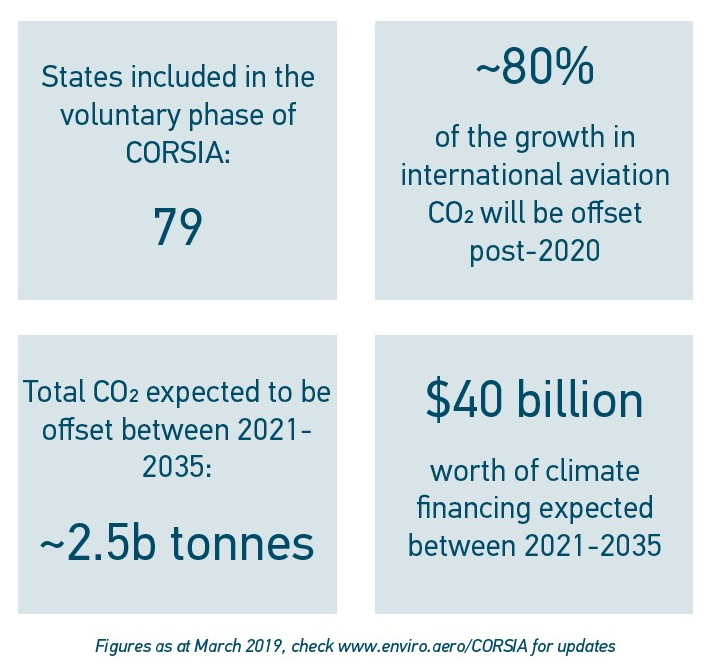 In 2016, the International Civil Aviation Organization (ICAO) adopted CORSIA, a global carbon offsetting scheme to address CO2 emissions from international aviation. The agreement at ICAO demonstrates that the aviation industry is determined to live up to its climate change commitments and play its part in meeting international goals for greenhouse gas emissions reduction.
In 2016, the International Civil Aviation Organization (ICAO) adopted CORSIA, a global carbon offsetting scheme to address CO2 emissions from international aviation. The agreement at ICAO demonstrates that the aviation industry is determined to live up to its climate change commitments and play its part in meeting international goals for greenhouse gas emissions reduction.
The aviation industry is committed to technology, operational and infrastructure advances to continue to reduce the sector’s carbon emissions. Offsetting is not intended to replace these efforts. Nor would the CORSIA make fuel efficiency any less of a day-to-day priority. Instead, CORSIA will help mitigate some of the mid-term growth in aviation emissions while long-term technology and sustainable aviation fuel solutions can have time to mature and be introduced into the fleet.
Under CORSIA, all airline operators need to monitor, verify and report their emissions on all international flights (from 1 January 2019). Operators will be required to purchase “emissions units”, to offset the growth in CO2 emissions from those routes covered by the scheme.
Scope of CORSIA
CORSIA is intended to offset the growth in emissions from international aviation, which is not covered under the Paris Agreement. Like the Paris Agreement, the CORSIA is initially a voluntary scheme, with States deciding if their country will be included. In later years, it is mandatory for all but small and developing countries.
CORSIA does not cover domestic air transport services, as these are subject to national action under the ‘nationally-determined contributions’ outlined in the Paris Agreement. However, if countries are wishing to implement market-based measures for domestic aviation, the industry strongly urges them to use the CORSIA template to design their systems.
Phased implementation
In order to address the concerns of developing States and to take into account the special circumstances and respective capabilities of States, CORSIA will be implemented in phases, illustrated above. From 2021 until 2026, only flights between “volunteering” states will be subject to offsetting requirements. From 2027, all flights will be subject to offsetting, with the exception of flights to/from Least Developed Countries (LDCs), Small Island Developing States (SIDS), Landlocked Developing Countries (LLDCs) and small aviation markets, unless they volunteer to participate.
Source: ATAG
